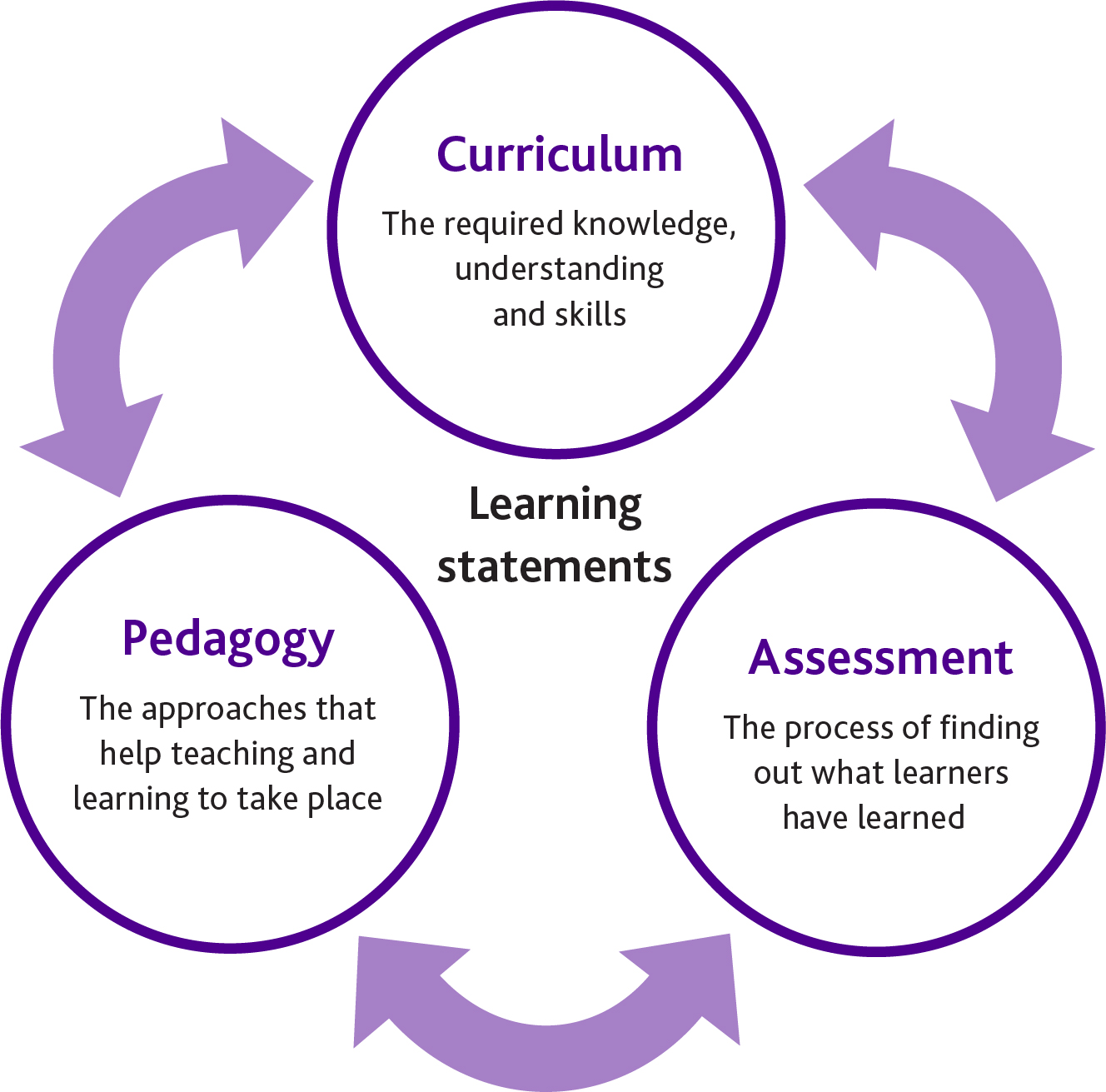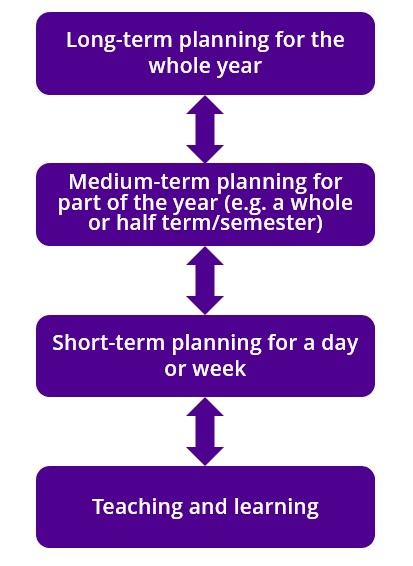Planning
General information about planning
Here you will find answers to these two questions:
- Why is planning important?
- What is planning?
Why is planning important?
Planning supports effective teaching and learning by creating coherence between curriculum, pedagogy and assessment. Your planning should align with the curriculum learning statements, reflect effective teaching and learning approaches, and be flexible and responsive to your children's needs.

Careful planning is important to ensure:
- progression of learning and development that builds on children's home and school experiences
- a holistic approach that makes connections between different curriculum areas
- engaging, meaningful contexts for learning
- availability of key resources
- inclusive learning opportunities that meet each child's needs
- a shared approach to teaching and learning across all practitioners in your setting
- a smooth transition from early years to primary school.
What is planning?
Planning is the process of deciding how you will cover the curriculum in your own context and with your own children.
It is useful to go through these three planning stages before teaching and learning starts. They help you to progress from general thinking before the beginning of the year to detailed thinking before each day:
- Long-term planning - high-level thinking about how to develop all the curriculum learning statements across the whole year.
- Medium-term planning - more detailed thinking about your sequence of teaching and learning across part of the year (e.g. a whole or half term/semester)
- Short-term planning - detailed thinking about activities for a day or a week.
Each planning stage is dependent on the others and all are dependent on children's actual learning.

Your planning needs to be flexible enough to respond to children's actual learning. As you respond to your children's needs, you need to ensure that each child still has opportunities to achieve every learning statement across the year.
Different people in your centre might lead on different planning stages, but everyone who regularly works with the children in your centre should be involved in the planning process in some way. This will ensure shared understanding within and across years, and support your children's progress most effectively.
Your thinking is the most important part of the planning process, but you will want to record your thinking in some way. There are many different ways to record planning. You may already have planning templates that fit with your centre's planning policy. If not, we recommend that you work together to develop consistent templates that are not too time-consuming to complete and everyone is comfortable using. This will help to support shared understanding and communication.
See 'Long-term planning', 'Medium-term planning' and 'Short-term planning' for more information about the planning process and example templates.